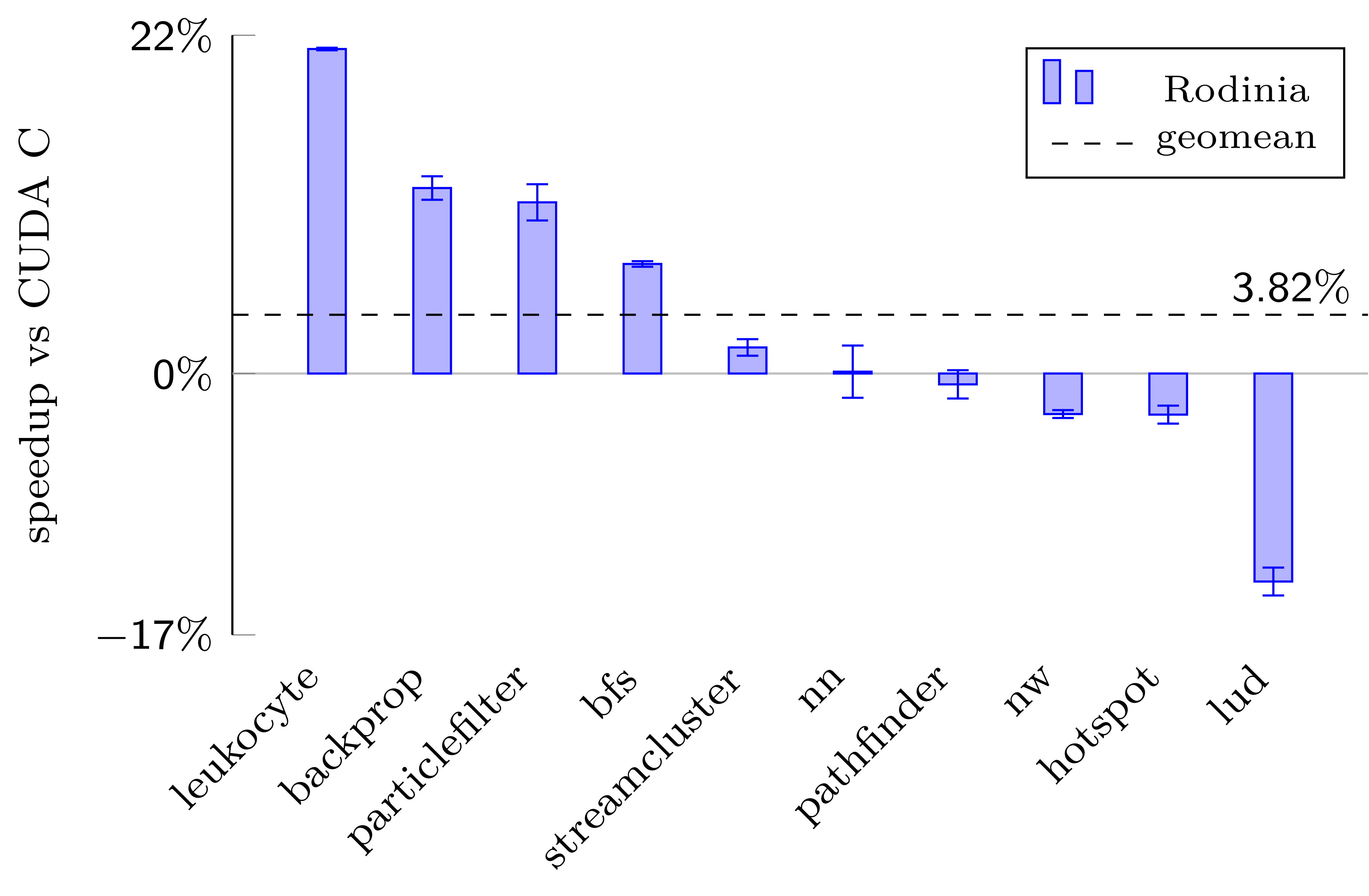NVIDIA CUDA
The programming support for NVIDIA GPUs in Julia is provided by the CUDA.jl package. It is built on the CUDA toolkit, and aims to be as full-featured and offer the same performance as CUDA C. The toolchain is mature, has been under development since 2014 and can easily be installed on any current version of Julia using the integrated package manager.
CUDA.jl makes it possible to program NVIDIA GPUs at different abstraction levels:
by using the
CuArraytype, providing a user-friendly yet powerful abstraction that does not require any GPU programming experience;by writing CUDA kernels, with the same performance as kernels written in CUDA C;
by interfacing with CUDA APIs and libraries directly, offering the same level of flexibility you would expect from a C-based programming environment.
The documentation of CUDA.jl demonstrates each of these approaches.
Performance
Julia on the CPU is known for its good performance, approaching that of statically compiled languages like C. The same holds for programming NVIDIA GPUs with kernels written using CUDA.jl, where we have shown the performance to approach and even sometimes exceed that of CUDA C on a selection[1] of applications from the Rodinia benchmark suite:
| [1] | Since porting applications from one programming language to another is labour |

Relative performance of Rodinia benchmarks implemented in Julia with CUDA.jl.
Publications
Much of the software in this toolchain was developed as part of academic research. If you would like to help support it, please star the relevant repositories as such metrics may help us secure funding in the future. If you use our software as part of your research, teaching, or other activities, we would be grateful if you could cite our work:
Tim Besard, Valentin Churavy, Alan Edelman and Bjorn De Sutter. "Rapid software prototyping for heterogeneous and distributed platforms." Advances in Engineering Software (2019).
Tim Besard, Christophe Foket, and Bjorn De Sutter. "Effective extensible programming: Unleashing Julia on GPUs." IEEE Transactions on Parallel and Distributed Systems (2018).
Tim Besard. "Abstractions for Programming Graphics Processors in High-Level Programming Languages." (2019) PhD dissertation.

